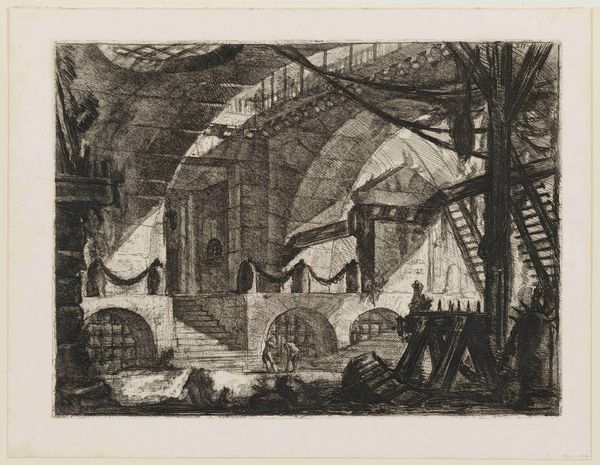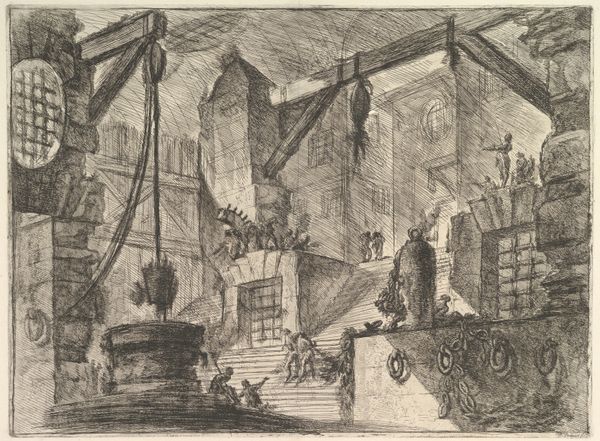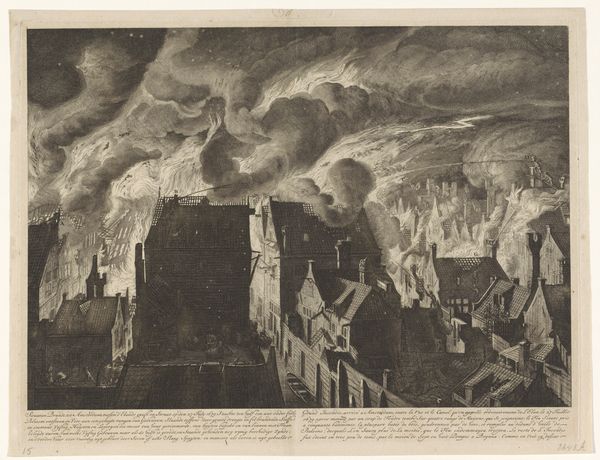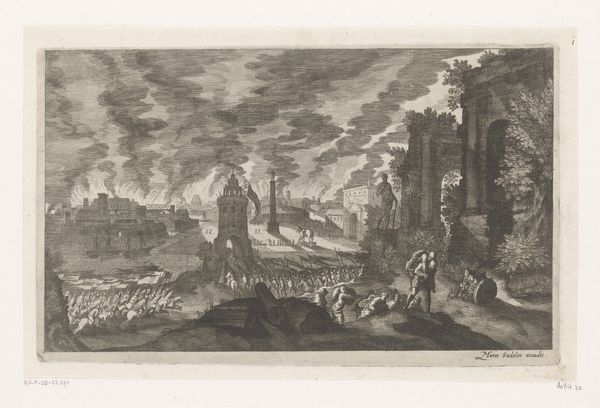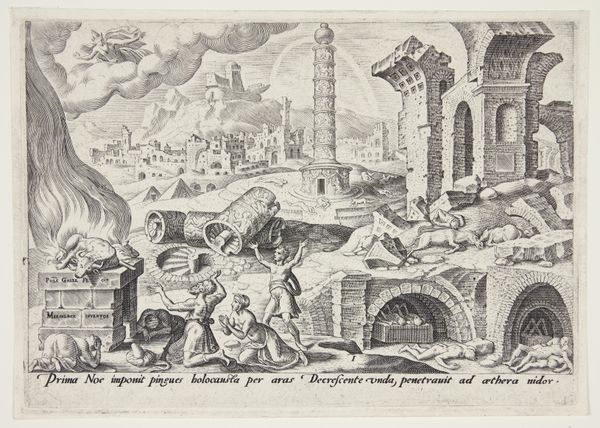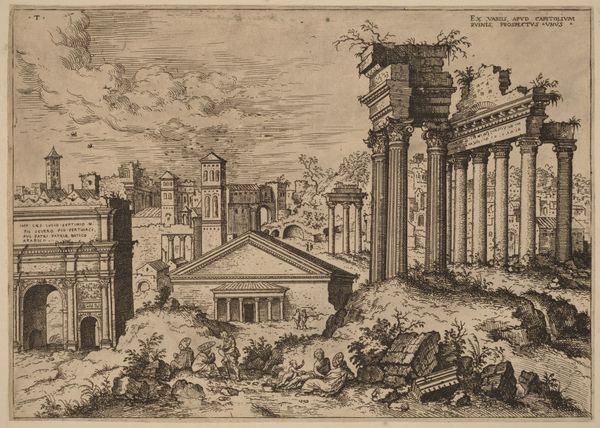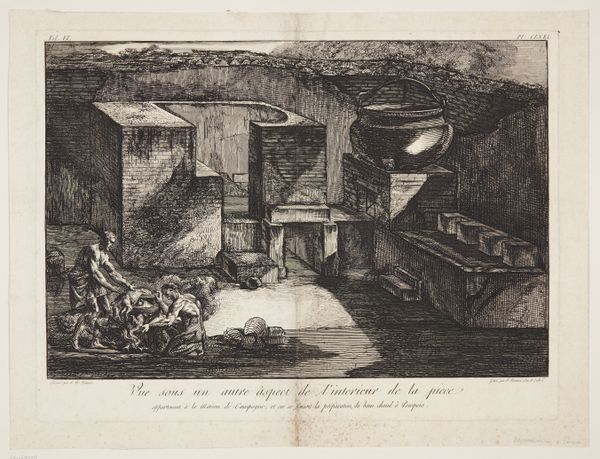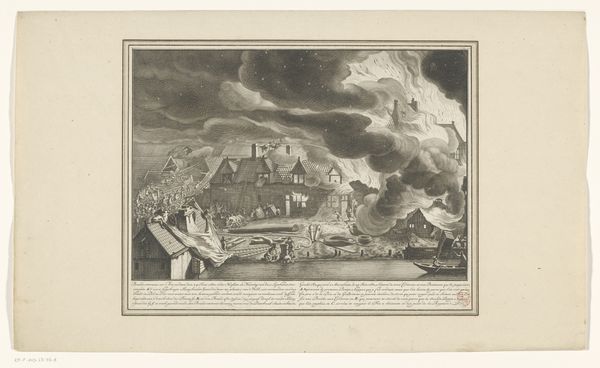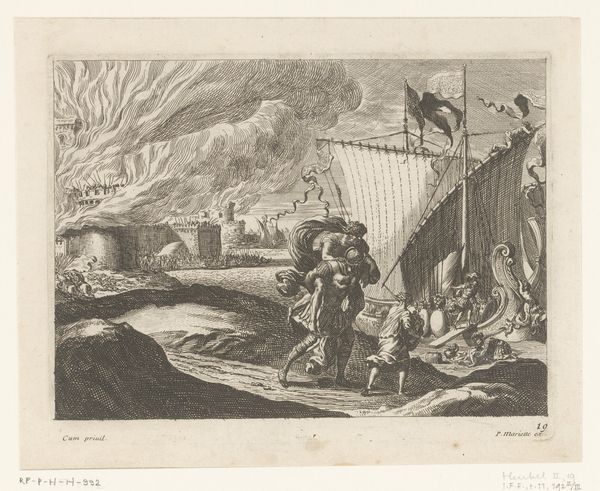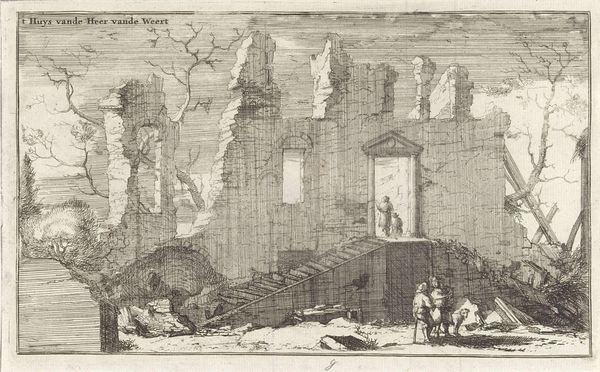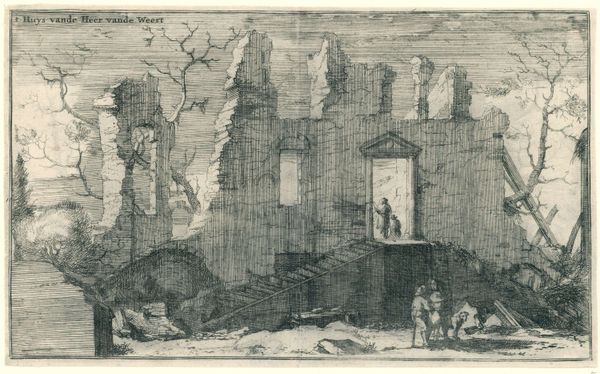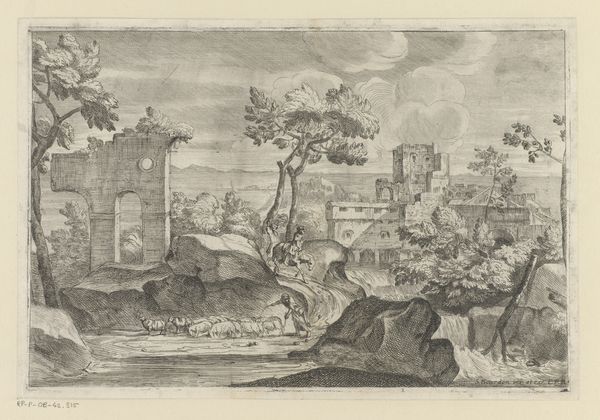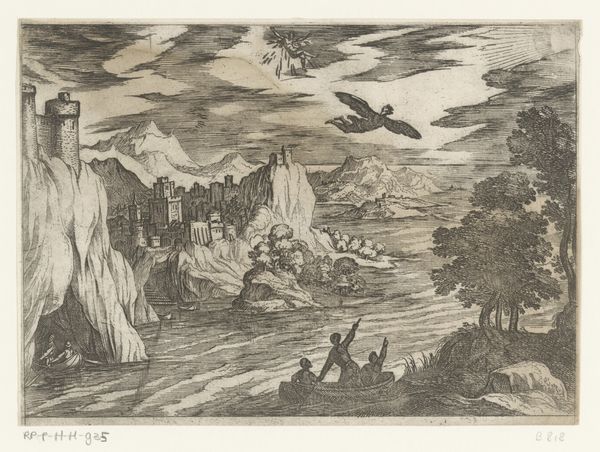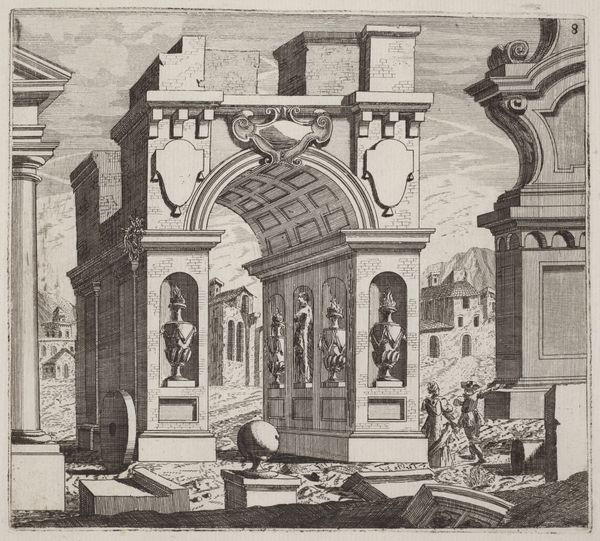
print, engraving
#
baroque
# print
#
old engraving style
#
landscape
#
cityscape
#
history-painting
#
tonal art
#
engraving
Dimensions: height 140 mm, width 227 mm
Copyright: Rijks Museum: Open Domain
Isaak Major made this print of the Trojan Horse in the early 17th century, deploying the technique of etching. This process involves drawing with a needle on a wax-coated metal plate, which is then submerged in acid. The acid bites into the metal where the wax has been removed, creating recessed lines that hold ink, before being printed onto paper. The image shows a city under siege, with smoke billowing in the background and the infamous wooden horse being led through the gates. The fine lines of the etching process allow for an incredible level of detail. Just look at the architectural elements, like the fluting on the column in the foreground, and the tiny figures of soldiers emerging from the horse. Etching, as a printmaking technique, allowed for the relatively quick and efficient production of multiple images, in a time before photography and digital media. This made art accessible to a wider audience, and contributed to the growth of a visual culture that was no longer limited to the wealthy elite.
Comments
No comments
Be the first to comment and join the conversation on the ultimate creative platform.
